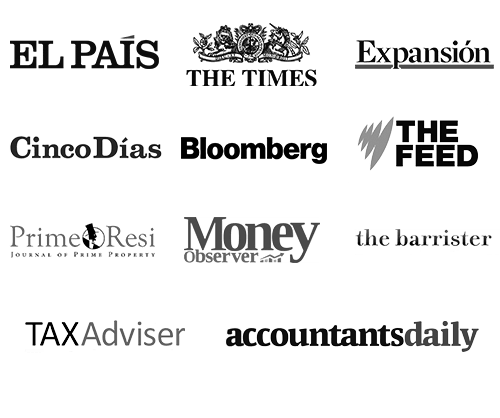Starting a business in Spain. Thanks to its strategic position between Europe, Africa and Latin America, Spain has grown as an economic node of great importance in sectors like transportation, hospitality and technology. Its workforce, while cheaper than in many other European countries, has an excellent education. For these and other reasons, foreign businesspeople often choose Spain as their starting point before expanding across the rest of Europe.
However, there is an important question to be answered: should this potential entrepreneur begin operations as self-employed, or set up a company?
As always, criteria should be adapted for every specific situation. Rather than reacting to problems, it is always best to contact firms like Del Canto Chambers ahead of setting up a new business in Spain. This is because their multijurisdictional experience with everything from franchising to intellectual property right guarantees you will get the best service in Spain. Starting a business already positions you in a fragile financial situation; you do not want to exacerbate it by making compliance mistakes!
Some of the factors involved in choosing Sociedad Limitada (SL) or self-employment are:
- Type of activity.
- Comercial focus.
- Business size.
- Personal preferences.
Understanding the differences between Sociedad Limitada and self-employed regimes in Spain
- Basics
Self-employed people in Spain, as in most other nations, are responsible for delivering the goods or services, covering relevant costs, and earning profits. On the other hand, SLs actually undertake these tasks when a limited company is set up. For instance, rather than profits accruing directly to the individual, it is the company and its statutes which designates the way the profits will be shared as dividends or kept for investment.
- Bureaucracy
DId you know that the term “red tape”, used to refer to excessive bureaucracy, originated in the Spanish Empire in the 1500s? Thankfully, Spain’s administration has evolved a lot since then. However, there are still many steps to setting up a company that entrepreneurs must take into account. If they come from other countries, particularly in Northern Europe, they might be impressed by the amount of information that has to be submitted before the relevant authorities.
For this sole reason, sometimes it is just best to start as a self-employed individual; but do not be too confident! Paperwork is still somewhat difficult, particularly the initial registration. Most self-employed or autónomo Spaniards actually employ gestores (administrators) at relatively affordable rates to take care of regular reviews and submissions. Their fees will always be lower, in any case, than employing a professional firm that manages the paperwork of an SL or limited company.
- Costs
Self-employed individuals pay monthly fees to Spanish Social Security. The most common rate is a little under €300, but there are special exemptions. These also change depending on location in Spain, as different regional governments have different incentives. For instance, registration costs are sometimes exempted the first time one registers as self-employed.
On the other hand, limited companies (SLs) pay no fees in themselves. However, directors must be registered as autonomos/self-employed, paying this fee of around €300. Equally, the struggles of day-to-day management leave little time to take care of paperwork. As a result, in almost all cases companies hire external firms to take care of administrative and financial duties. These costs are of course higher than self-employed payments or even self-employed administrative assistants: more paperwork is needed to start and maintain a company.
- Responsibilities
The issue of debt responsibility is important, particularly if there has been an important initial investment in the company. Self-employed business people are held responsible for any liability. As a result, individual assets like real estate, investments, pension funds and more are liable to be employed to cover debts.
SLs, on the other hand, are precisely called “limited” because their exposure does not result in the exposure of shareholder assets. Companies are set up with a minimum capital of €3,000 divided between shareholders. In this case, it is only those assets linked to the company that can be used to cover unexpected liabilities.
- Taxation
Autonomos or self-employed people pay tax through the Spanish income tax, called IRPF. The relevant percentage applied depends on the profits the self-employed entrepreneur obtains. SLs or limited companies pay corporate tax, called IS in Spain. In this case, the percentage does not change with profits, but is fixed. As a result, depending on expected profitability, one or the other option might be more suitable. Remember that company shareholders will still have to report dividends and declare their own personal income taxes through the IRPF.
Remember that the acquisition of real estate comes with its own taxation and duties, sometimes with geographical differences. It is important to hire tax experts who are familiar with the Spanish context to conduct tax planning and ensure full compliance.
- Customer perceptions
Finally, there’s the issue of marketing and customer perceptions. Will clients, suppliers and banks behave more favourably towards autonomos/self-employed people in Spain, or towards SLs/private companies?
Self-employed entrepreneurs communicate smallness, closeness and personalised contact. Limited companies project an image of being slightly bigger and more capable of delivering. As a result, SLs have greater access to credit, not least because their credit requests normally imply more bureaucracy and transparency.
Self-employed or limited company in Spain? Let us help you
As you can see, there are many factors involved in choosing one or another regime. From size, to timings and expected turnovers or staff requirements, small differences can actually make self-employment or company creation more attractive. In fact, there might even be other options to start a business in Spain, such as acquisitions or franchising.
Whatever you do, you should contact a multi-skilled firm with international experience, like Del Canto. Since the team is diverse and used to operating across borders and business sectors, they will be perfectly positioned to advise you from the very beginning, until you become an unparalleled success. Contact us and find out where to start.
Starting a business in Spain. By Del Canto Chambers
Contact Us
Del Canto Chambers is a leading London Chambers specialising in commercial law and tax, both domestic and international.
We can offer you extensive advice and guidance in putting the right legal structure in place for your new business. Our legal experts can work with you throughout the life of your enterprise, ensuring that it has a sound basis and that all compliance issues are properly dealt with.
To make a no-obligation enquiry, please either call us now on:
+44 2070 430648 or Make An Online Enquiry.





